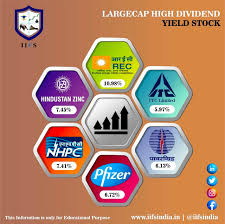
Quality is the most important thing when looking for REITs that you can invest in. It is essential to find quality real property and excellent tenants. There are many ways to invest in real estate, and some people choose to hire professionals. There are many important things to consider when selecting a REIT. This article will guide you through the evaluation of REITs. We'll show you how to pick the right mutual fund and how to value them.
Investing with a REIT
An excellent way of investing in rental properties is to invest in real estate investment trusts (REITs), especially if your budget is limited. REITs can offer investors tax benefits that could be very beneficial. Investors have the option to take 20% off the pass-through, and depreciation if the investment company pays 90% in dividends.
A REIT's main disadvantage is that they are not easily traded and cannot be sold. REITs invest in income-producing assets and then distribute that income to shareholders monthly. REITs must share 90% of their profits with shareholders. However, the income tax rates they pay are much higher. This is not a good investment.

Qualifiers for REITs
The income of a REIT must be distributed to investors at least ninety percent of its taxable income. The REIT must not be a bank or insurance company. It must also have at least one director. All shareholders must have transferable certificates of beneficial interests or shares of REIT stocks. Each shareholder must also have held shares for at most three quarters of a calendar-year.
A minimum of seven5% must be held by individual investors in order to qualify as a REIT. These assets must in general be real-estate. A REIT's gross assets, as measured by U.S. GAAP, must be at least fifty-five percent real estate. This includes real estate, government securities, cash, and other assets.
Ways to evaluate a REIT
Investors should consider the type of asset that occupies the REIT when choosing one. Long-term leases are a great choice for investors because they lock in revenue. However, industrial and retail REITs have a high likelihood of being stable over time. They should also look at the country or sector in which the REIT works. Investors should consider the REIT’s recent property sales in addition to assessing its portfolio size. The sale of underperforming assets is a good sign of good management and can result in REITs making more money.
The investment grade credit rating should also be considered when choosing a REIT. A BBB or higher investment grade credit rating on the Standard & Poor’s scale is a sign of a quality REIT. A high credit rating can indicate a quality REIT, and it can also be a competitive advantage in the rental industry. It is important to remember that not all REITs have high credit ratings.

Value of a Reit
How can you determine the value of a REIT that you want to invest in? Add up the real estate assets of a REIT to determine its value. Although this will give you an idea of the total value of the REIT overall, it is not a complete appraisal. Before investing in the REIT, it is better to do a more detailed appraisal. You can check the value of each property or region to get an idea of the value per share. Investors should be aware, however, of the capital expenditures that REITs are required to make every so often.
Another metric you should consider when deciding the Value of a REIT that you want to invest in is its dividend payout ratio. This ratio is expressed in percentages of profits. It helps you evaluate the sustainability of a REIT’s dividend payout. If it is higher than this threshold, the dividend payout ratio should be between 70-80% and below. A REIT that has a high dividend payout ratio could be considering cutting its dividend. Another factor to consider is the nature of tenants as well as the type of lease.
FAQ
What are the benefits of investing in a mutual fund?
-
Low cost - buying shares directly from a company is expensive. It is cheaper to buy shares via a mutual fund.
-
Diversification is a feature of most mutual funds that includes a variety securities. The value of one security type will drop, while the value of others will rise.
-
Professional management - professional managers make sure that the fund invests only in those securities that are appropriate for its objectives.
-
Liquidity: Mutual funds allow you to have instant access cash. You can withdraw your money whenever you want.
-
Tax efficiency - Mutual funds are tax efficient. Because mutual funds are tax efficient, you don’t have to worry much about capital gains or loss until you decide to sell your shares.
-
Buy and sell of shares are free from transaction costs.
-
Mutual funds are easy to use. You will need a bank accounts and some cash.
-
Flexibility - You can modify your holdings as many times as you wish without paying additional fees.
-
Access to information- You can find out all about the fund and what it is doing.
-
You can ask questions of the fund manager and receive investment advice.
-
Security – You can see exactly what level of security you hold.
-
Control - you can control the way the fund makes its investment decisions.
-
Portfolio tracking allows you to track the performance of your portfolio over time.
-
Easy withdrawal - it is easy to withdraw funds.
Investing through mutual funds has its disadvantages
-
Limited choice - not every possible investment opportunity is available in a mutual fund.
-
High expense ratio – Brokerage fees, administrative charges and operating costs are just a few of the expenses you will pay for owning a portion of a mutual trust fund. These expenses will reduce your returns.
-
Lack of liquidity - many mutual fund do not accept deposits. They must be bought using cash. This limits the amount of money you can invest.
-
Poor customer support - customers cannot complain to a single person about issues with mutual funds. Instead, you need to contact the fund's brokers, salespeople, and administrators.
-
Risky - if the fund becomes insolvent, you could lose everything.
Why is a stock security?
Security is an investment instrument that's value depends on another company. It may be issued either by a corporation (e.g. stocks), government (e.g. bond), or any other entity (e.g. preferred stock). If the asset's value falls, the issuer will pay shareholders dividends, repay creditors' debts, or return capital.
What's the difference among marketable and unmarketable securities, exactly?
The key differences between the two are that non-marketable security have lower liquidity, lower trading volumes and higher transaction fees. Marketable securities, on the other hand, are traded on exchanges and therefore have greater liquidity and trading volume. Marketable securities also have better price discovery because they can trade at any time. This rule is not perfect. There are however many exceptions. For instance, mutual funds may not be traded on public markets because they are only accessible to institutional investors.
Non-marketable security tend to be more risky then marketable. They are generally lower yielding and require higher initial capital deposits. Marketable securities can be more secure and simpler to deal with than those that are not marketable.
A large corporation may have a better chance of repaying a bond than one issued to a small company. The reason is that the former is likely to have a strong balance sheet while the latter may not.
Because of the potential for higher portfolio returns, investors prefer to own marketable securities.
Why are marketable securities important?
An investment company's main goal is to generate income through investments. It does this by investing its assets in various types of financial instruments such as stocks, bonds, and other securities. These securities are attractive to investors because of their unique characteristics. They may be considered to be safe because they are backed by the full faith and credit of the issuer, they pay dividends, interest, or both, they offer growth potential, and/or they carry tax advantages.
What security is considered "marketable" is the most important characteristic. This refers primarily to whether the security can be traded on a stock exchange. If securities are not marketable, they cannot be purchased or sold without a broker.
Marketable securities include government and corporate bonds, preferred stocks, common stocks, convertible debentures, unit trusts, real estate investment trusts, money market funds, and exchange-traded funds.
These securities are a source of higher profits for investment companies than shares or equities.
Statistics
- Ratchet down that 10% if you don't yet have a healthy emergency fund and 10% to 15% of your income funneled into a retirement savings account. (nerdwallet.com)
- Even if you find talent for trading stocks, allocating more than 10% of your portfolio to an individual stock can expose your savings to too much volatility. (nerdwallet.com)
- US resident who opens a new IBKR Pro individual or joint account receives a 0.25% rate reduction on margin loans. (nerdwallet.com)
- For instance, an individual or entity that owns 100,000 shares of a company with one million outstanding shares would have a 10% ownership stake. (investopedia.com)
External Links
How To
How to make a trading plan
A trading plan helps you manage your money effectively. It will help you determine how much money is available and your goals.
Before creating a trading plan, it is important to consider your goals. You may wish to save money, earn interest, or spend less. You might consider investing in bonds or shares if you are saving money. You can save interest by buying a house or opening a savings account. Maybe you'd rather spend less and go on holiday, or buy something nice.
Once you have a clear idea of what you want with your money, it's time to determine how much you need to start. It depends on where you live, and whether or not you have debts. It's also important to think about how much you make every week or month. Your income is the amount you earn after taxes.
Next, you'll need to save enough money to cover your expenses. These expenses include rent, food, travel, bills and any other costs you may have to pay. These all add up to your monthly expense.
You'll also need to determine how much you still have at the end the month. This is your net disposable income.
Now you've got everything you need to work out how to use your money most efficiently.
You can download one from the internet to get started with a basic trading plan. You can also ask an expert in investing to help you build one.
Here's an example.
This will show all of your income and expenses so far. You will notice that this includes your current balance in the bank and your investment portfolio.
And here's a second example. This was created by an accountant.
It shows you how to calculate the amount of risk you can afford to take.
Don't attempt to predict the past. Instead, be focused on today's money management.